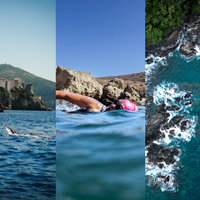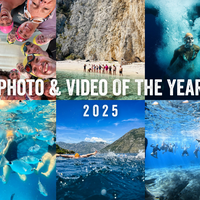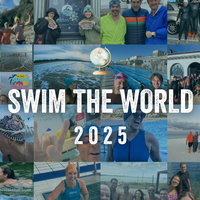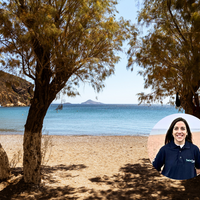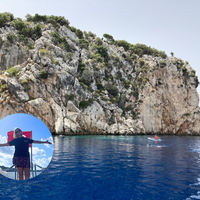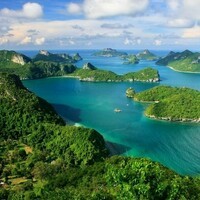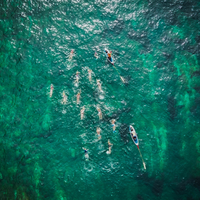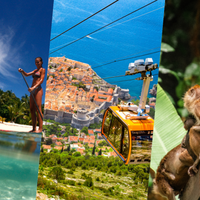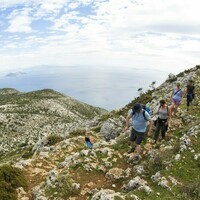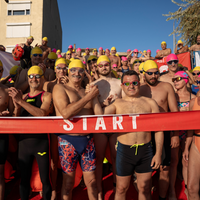For the fourth interview in our 'SwimTrekkers' series, we spoke to award-winning documentary filmmaker, Ian Darling, who just directed ‘The Pool’ about the iconic Icebergs pool in Sydney, Australia…
Bondi Icebergs is known as the 'most photographed pool in the world' - any of you who've ever gotten lost surfing Instagram for places to swim will surely recognise it.
Like all the best ocean pools it is left exposed to the elements. The pool is cleaned once a week (every Thursday) and filled by the waves of a rising tide. Crabs scale the outer rocks, jellyfish are sometimes found floating in the lanes at sunrise and often humpback whales are sighted from the poolside, breaching in the bay. For anyone sick of the chlorinated indoors this place is heaven!
Not only is Ian Darling an award-winning filmmaker, but he is also Executive Director of Shark Island Institute and Chair of Shark Island Foundation. For the past 20 years he has supported and created social impact documentaries. It is his belief that powerful documentary films can shape attitudes, behaviours and even laws.
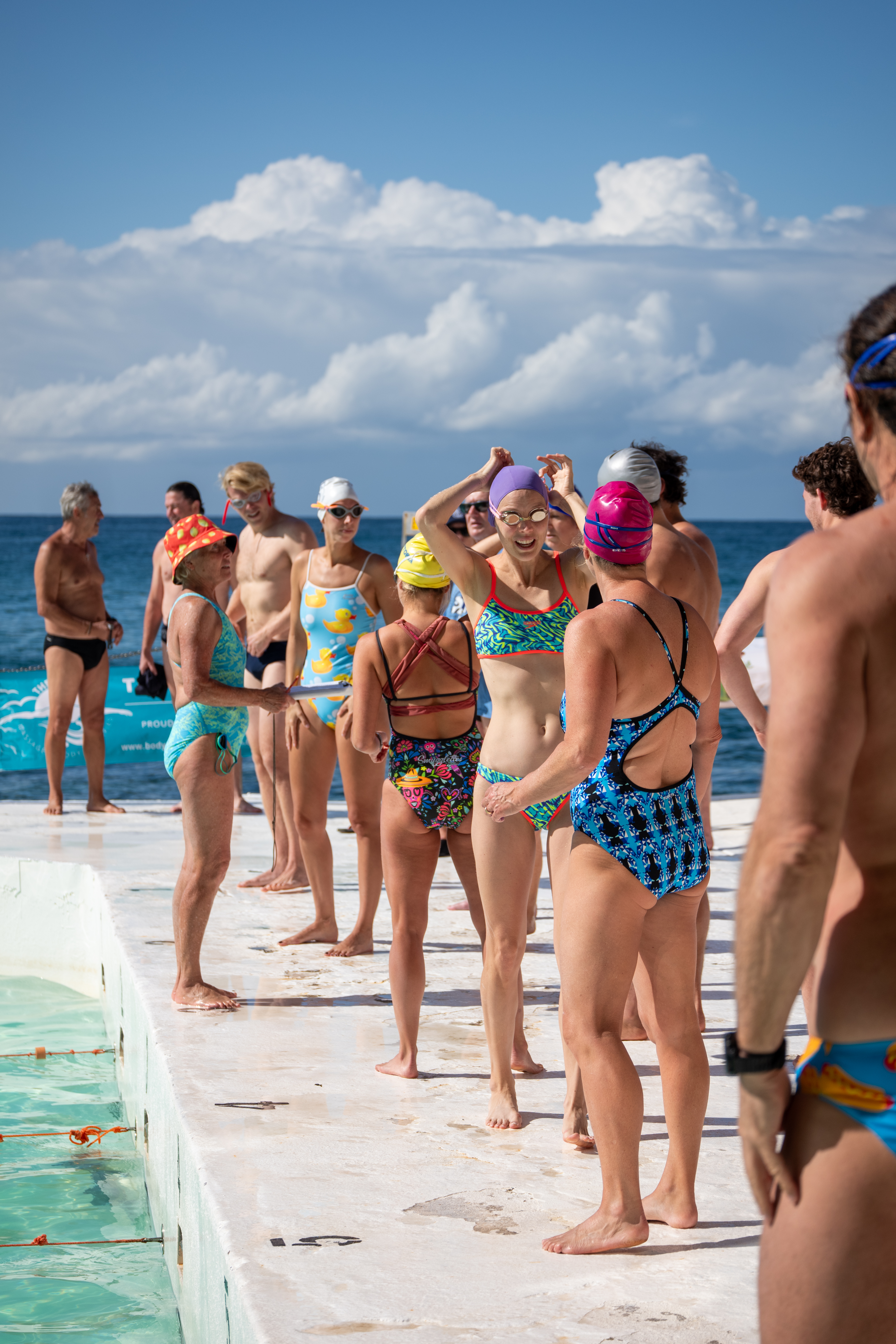
Ian's most recent film, The Pool, focuses on the joyful spirit of swimming outdoors. It also portrays our yearning as social animals to seek connection, community and a respite from the blows that life can deal at times.
On a list of the essentials needed for a happy life most swimmers would rank ‘a good pool to swim in’ somewhere near the top. 'The Pool' reminds us that swimmers can be solitary creatures, but they are united by a common bond. The sense of belonging, calm and separation from a busy, crowded world is very tough to find anywhere else.
Ian's film reminds us why ocean pools are so special, vital to the community and worth fighting for.
‘More than anything we wanted to make a film where there was just one central character. The pool itself. It just happened to have lots of arms and legs, and an endless well of stories to tell.’
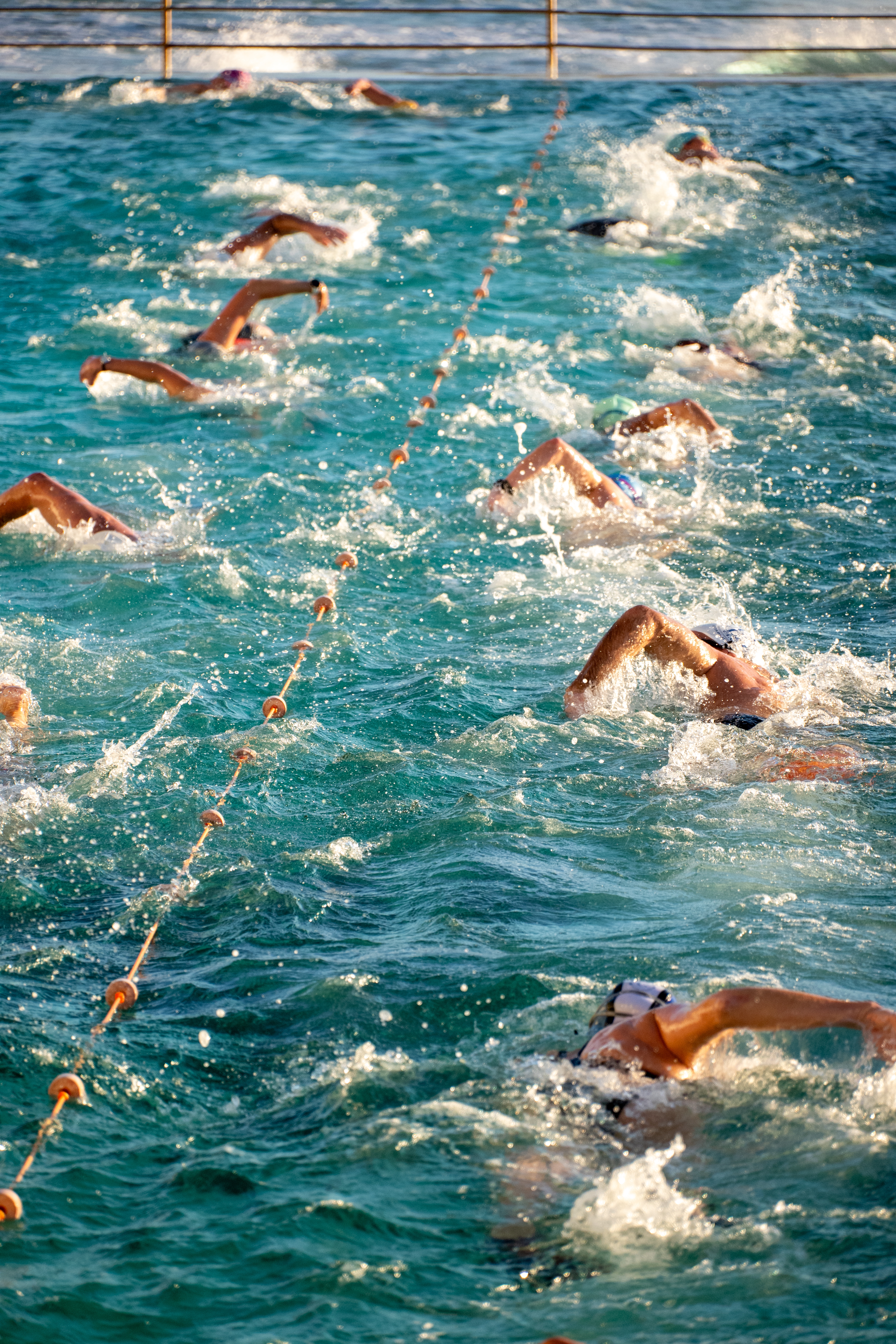
‘As the film says Icebergs is the ‘most photographed pool in the world’ – people travel from all around the world to swim there. What do you think makes this particular pool so special?’
Ian: 'I think being on the edge of possibly one of the most famous beaches in the world makes it special. I think the fact it's salt water is incredible too. Now, I'm not a competitive swimmer, but I'm a very regular swimmer and I've spent a lot of time in chlorinated pools. It was such a joy to come back to the fresh salt water of that Icebergs pool.'
'I think the building is stunning as well. There's just something about it. When I first walked in, I felt like I was in this 60s movie. I was wondering why they painted it all white, whether that was sort of an Italian influence - something from Capri, perhaps. And apparently it was because the polar bear enclosure at Taronga Zoo was painted white. So, being the 'Icebergs Club', they thought that was appropriate. When they painted all the rocks and bricks in the 30s that was the inspiration.'
'So yeah, it's visually stunning and I think just knowing you've got a tonne of history there. People have been swimming in the natural pool down there for thousands of years. They've swum in the constructed pool since 1929 as well. You just feel it's been a really important place for a very long time for so many people.'
‘You just feel it's been a really important place for a very long time for so many people...’
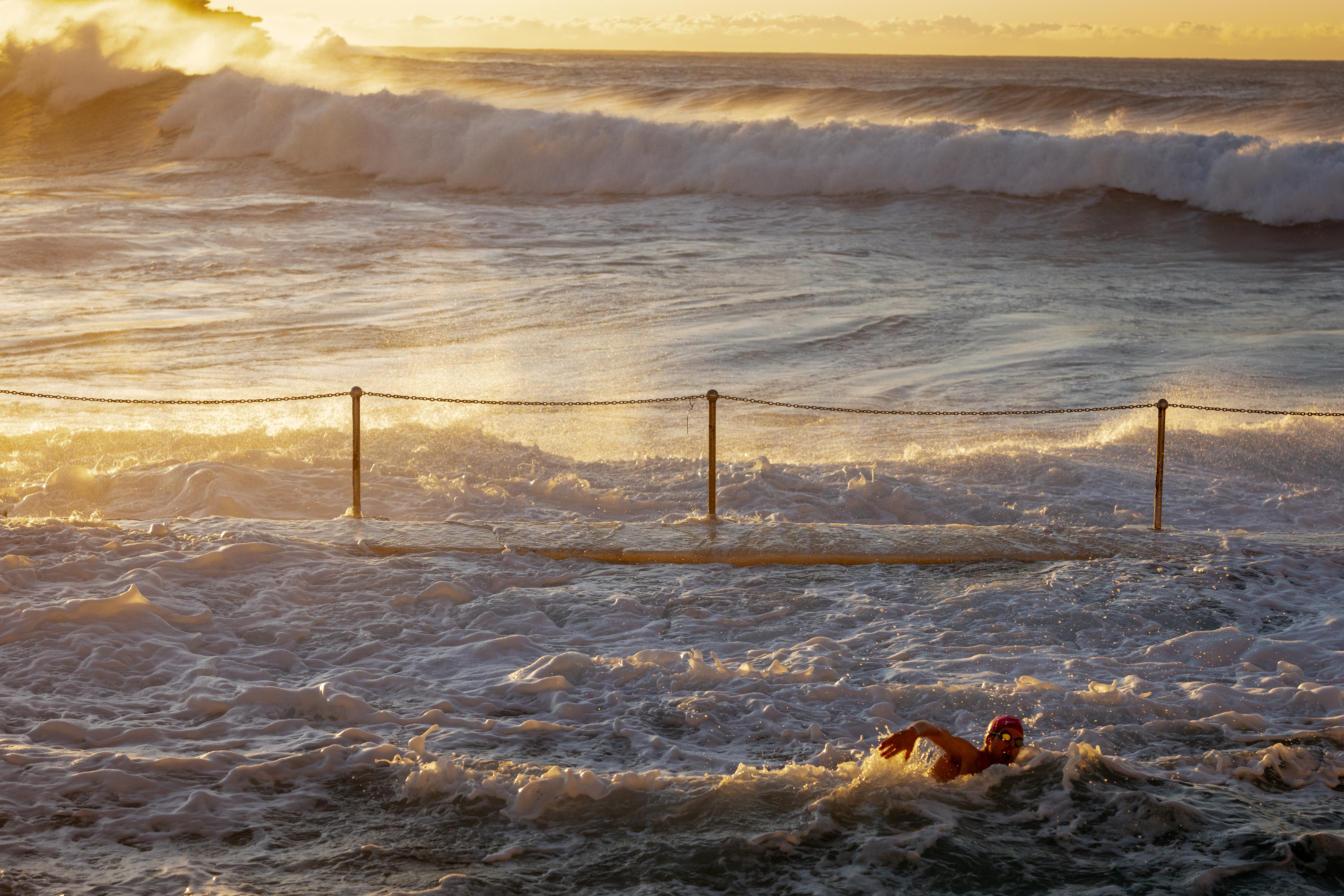
‘This is a meditative film with what feels like a real appreciation for water at its core. Do you have a personal connection to the Icebergs pool? What made you to want to make this film?’
Ian: 'I guess the connection was I moved up from Melbourne in the early 90s and my wife and I swam all year round there and it was quite a warm winter, but coming from Melbourne we'd never swim in winter in the ocean. It was just magnificent at Bondi Beach, and we thought: 'How long has this been going on?''
'We saw this structure down the end of the beach and knowing it was Icebergs I just assumed that it was sort of a private club. It took us about 10 years to realise that it was a public. I started swimming in it far more regularly, but I was more of a seasonal swimmer. I wasn't so keen on the cold water. Then COVID came along and when everything was closed, we went swimming at the furthest beach in the harbour over at Camp Cove. I actually discovered how much I loved cold water. It was from then that I started going back to Icebergs all year round.'
'I've done some pretty heavy films from child protection to racism with Adam Goods - films about the prison system and child abuse and a trilogy of homeless films. I was looking for a new film and feeling that I needed to do something that was going to be sort of a happy and more uplifting film. I was down there having coffee with one of the swimmers. I was saying: "I'm looking at doing something that is uplifting." My friend said: "Well, is there a story here at this place?" I just suddenly thought about it and, not only the visual nature of it, but it's such an incredible community. We could highlight the real value of pools like Icebergs in a post-COVID world.'
'When it was taken away from us, we were suddenly yearning for it. We're social creatures and we need connection - so that was the initial hypothesis. You mentioned 'meditative' and that was a very important part of this film. We wanted to give audiences permission just to sit and look at the waves. That's important in so many respects. Especially in this information age where we've been bombarded the whole time. You still see people down at Icebergs looking at their phones when we should all just be looking at the waves. So, we thought let's make a film that gives the audience time to drift and contemplate and think about their own position in the community.'
‘We're social creatures and we need connection - so that was the initial hypothesis...’
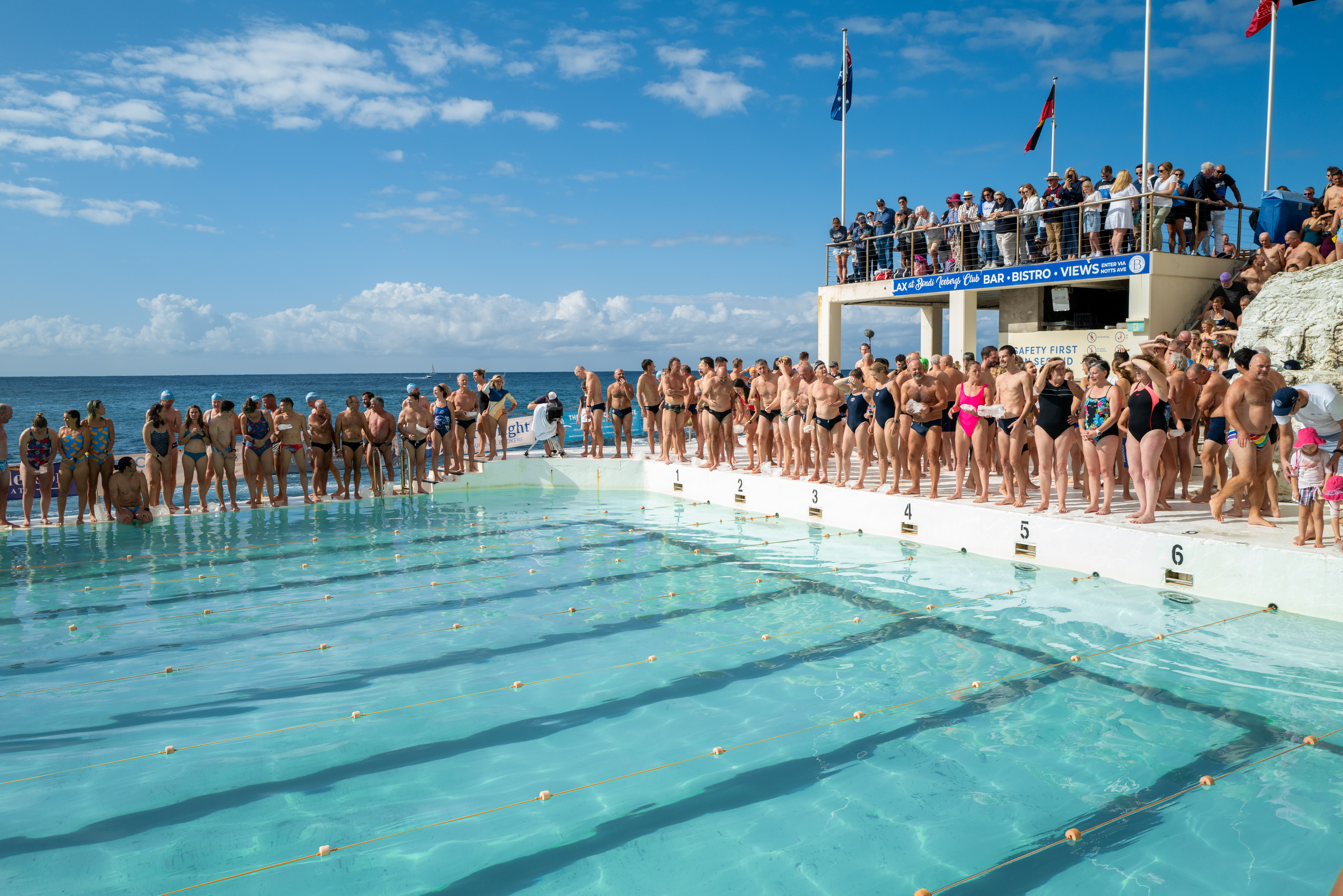
‘You said you wanted the pool to be a central character as it changes from summer to winter. From the storms to the summer crowds, which of the pool’s various moods was your favourite?’
Ian: 'Really hard one to answer because I just loved the variety of those moods. I'm not a morning person, but we started at 5am every morning. Just seeing the different colours of the sky was incredible. There's one shot we called the 'purple tumble turns' we filmed in slow motion with the swimmer turning each time at the end of the pool. This wasn't filmed like a traditional documentary.'
'One day there was a storm. We got there and didn't realise the swell was going to be quite so big. We did a huge sound mix for that. At first our boom didn't record the roar of the ocean. In the cinema you see audiences just jump when those waves come in and we wanted that scene to crash in and we built up so much sound in that and put a deep Atlantic Ocean blue on it. That was spectacular.'
'After the storm we were thinking of packing up and then suddenly this incredible rainbow appeared. I've never seen that rainbow from north to south of the bay. Luckily, we captured it, but it was so important for the film too. The pool's sort of the central character and people are falling in love with it. Then there's that storm and people are feeling quite anxious about the pool being hit, swamped and damaged. The rainbow was this metaphorical signal that everything's okay.'
‘In the cinema you see audiences just jump when those waves come in and we wanted that scene to crash in...’
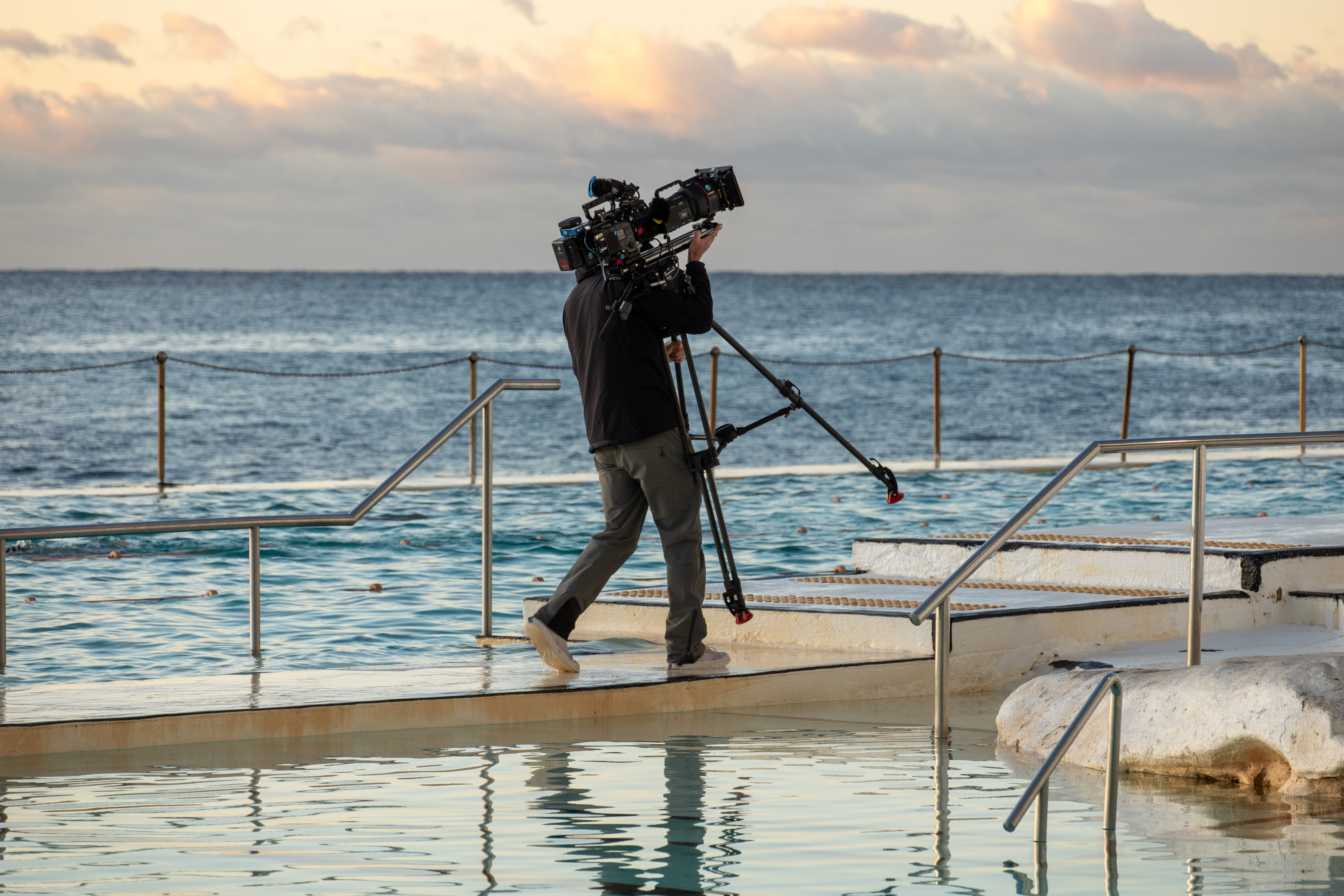
‘There are so many great characters in the film from a Lebanese boxer to a Masters swimmers and cancer survivor. How did you uncover these different stories and choose who to portray in the film?’
Ian: 'That's a good question. We wanted to do sort of a time capsule of the swimmers and members down there. We conducted 100 interviews that we put on the film's website. We could go into great detail with all the characters there. There's about 100 hours of interviews of them, really compelling stuff. From those interviews, it was almost like an audition, we got a sense of who had these interesting elements to their stories. Everyone was interesting, but rather than choosing characters, we chose themes.'
'We wanted to represent mental health and depression and physical health both in terms of fitness, but also challenges. With one of the characters, Donna, who's been battling ovarian cancer, she wanted that story in the film to enable others dealing with something similar to be able to relate to. I think ageing was a really important one, having very active swimmers in their mid 80s and 90s. Volunteering was another theme and so we got the two guys who had been there volunteering for over 40 years.'
'Meditation was an important element, as well as routine and friendship. There are the two friends who meet at 13 minutes to 7 every morning. Also, Neil Rogers, who's the coach, he tragically died a few weeks before we launched the film at the Sydney Film Festival. He was such a strong character - an Olympic swimmer, Commonwealth Games gold medallist and he had such respect in the community. He was the reason people would get up in the dark when they knew they were diving into cold water. You know, the swimmers didn't want to let Neil or each other down. I was very impressed by how they got in on some of those really cold mornings.'
'One of the swimmers, Rex, swims without a cap and without a wet suit and he absolutely loves it. But he says after a full hour in that water: "My bones are cold for the whole day."'
‘We wanted to represent mental health and depression and physical health both in terms of fitness, but also challenges...’
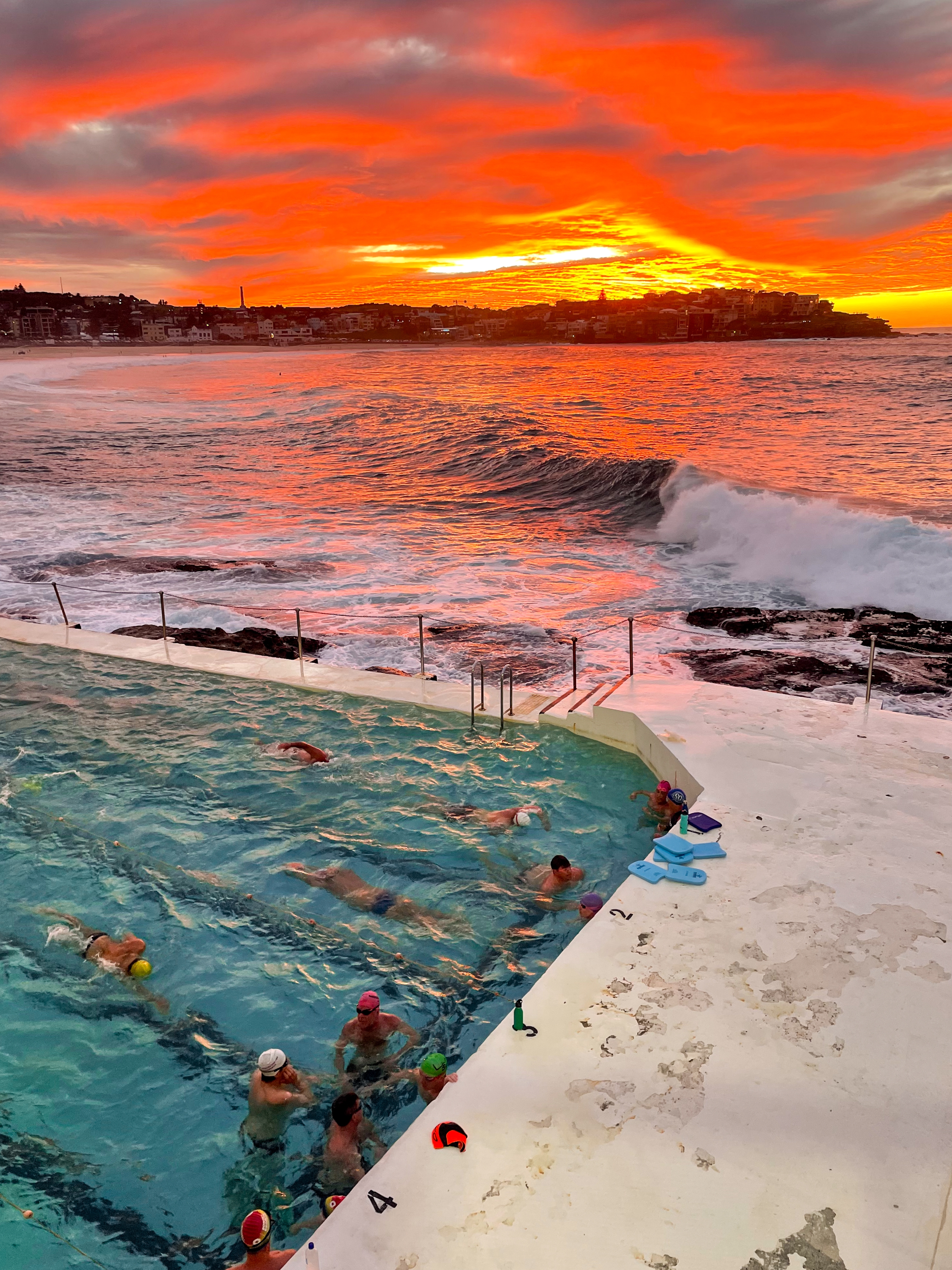
‘Is there anything you think all these different Icebergs swimmers have in common?’
Ian: 'I mean, there are a number of things, but the the biggest thing that jumped out was was just a common language and story that it never ceases to amaze me how many hours people can talk about swimming. There's this common language. I think that's the key to a community is finding a group of people that make you feel comfortable, not only in your own skin, but also, you're talking a language that speaks to you.'
'We've been showing the film around Australia, and we've actually found the film is speaking to a much broader group of people than we thought it would. There were a couple of old ladies who came up with tears in their eyes and they said: "We're not swimmers, but we feel you've just made a film about our book club."'
'Icebergs is the most photographed pool in the world and the pool really says: "look at me". There's a community of influencers and people taking selfies. In many ways, the swimming community down there is the antithesis of that. Swimmers come in all shapes, sizes, nationalities and age groups. It's a very grounded group of people who swim and use the pool. The influencers and Instagrammers are more concerned about their image and body beautiful. This group of people are more concerned about whether they've had a good swim and whether they're going to get the quiz right on a Saturday morning. That's the richness of that community. It's so important that we find our tribe."
‘It's so important that we find our tribe...’
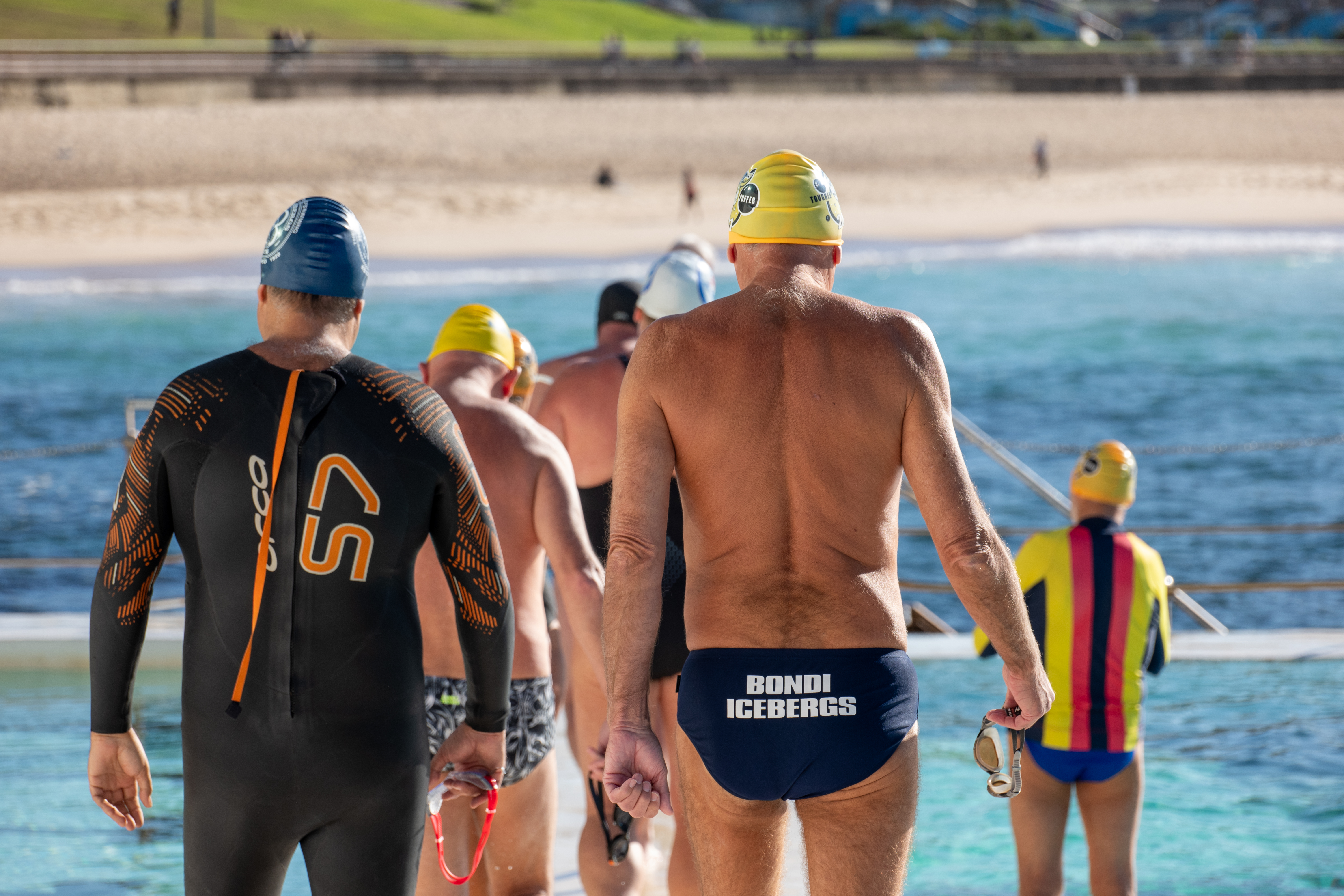
‘Some swimmers talk about being able to swim at Icebergs and across the bay as lifesaving. One swimmer calls it ‘church’. Another calls the ocean ‘Dr Pacific’. How important do you think sea pools like this one are for the community?’
Ian: 'It's something we didn't think we were going to be doing, but we're actually going to be building a big campaign to take to every council around Australia, starting with the ones on the coast. So many ocean pools are under threat of closure. New South Wales has 80 or 90 ocean pools at any given time. Half of them are closed and councils aren't cleaning them and they're not maintaining them. It's not just the ocean pools, but pools in general.'
'We were over in Adelaide for the Film Festival a couple of weeks ago. There's the Norwood pool, which is one of the most beautiful. That was opened in the 30s and there's been a merger of three councils and they're just not putting a value on swimming pools. So, we want to get this film into literally every council in every region and among all the swim clubs and surf lifesaving clubs. We want to use it as a way of highlighting to local government that pools are really important and it's not just for physical health, but for the mental health of the community.'
'The pool is a gathering place and it's so important. If you take away the heart of the community social problems emerge and the cost of health and everything goes through the roof. If you close pools, if you close cinemas, if you close local libraries and even local post offices you lose places where people can meet and chat. It wasn't something we were focusing on enough when we went into the film, but it just jumped out loud and clear for us. The community value this pool as their church and their saviour - their way of keeping themselves alive and free from depression. It's their way of dealing with a cancer diagnosis.'
'One of the swimmers is 85 and wanted to keep swimming competitively for another 10 years. He said it's important having the swimming side, but the social side is so important too. He told me most of his friends were in nursing homes. They've got no one to talk to and they're literally dying. He was there at the pool every day. Swimming is great for the physical side. The conversations and mental stimulation are so important as well. It's vital that government funders see how important these pools are.'
‘It's vital that government funders see how important these pools are.’
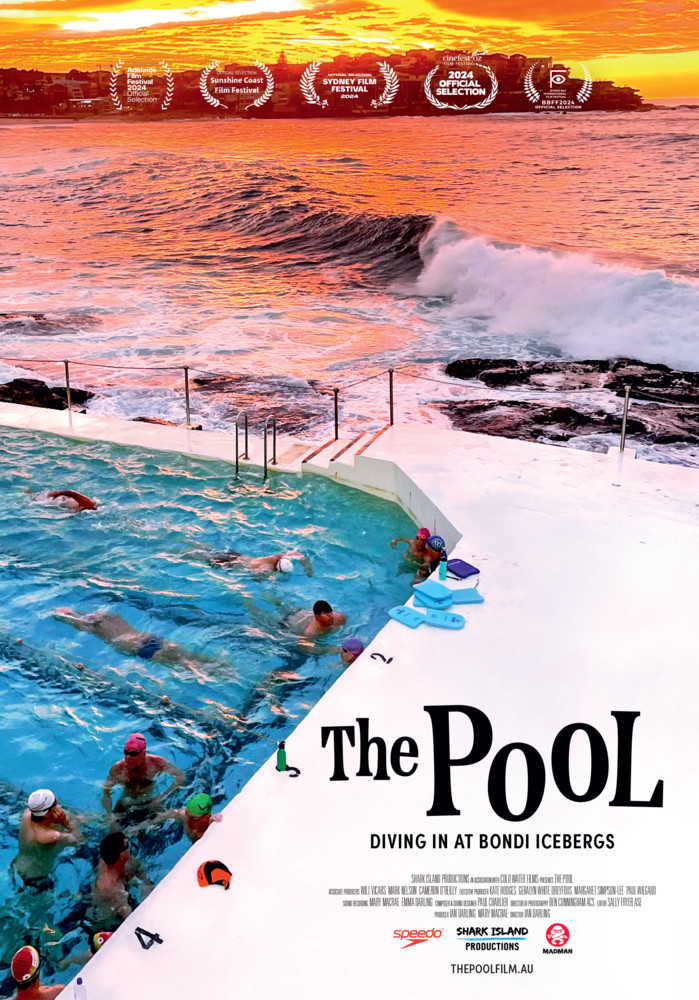
Where To See The Film
Learn more about the film and upcoming screenings across Australia on the official 'The Pool' website.
Ian Darling is currently directing and producing feature documentary THE VALLEY.
Did you enjoy this interview? Let us know in the comments section below. If you have any other questions, please don't hesitate to send them to us directly: marketing@swimtrek.com...


